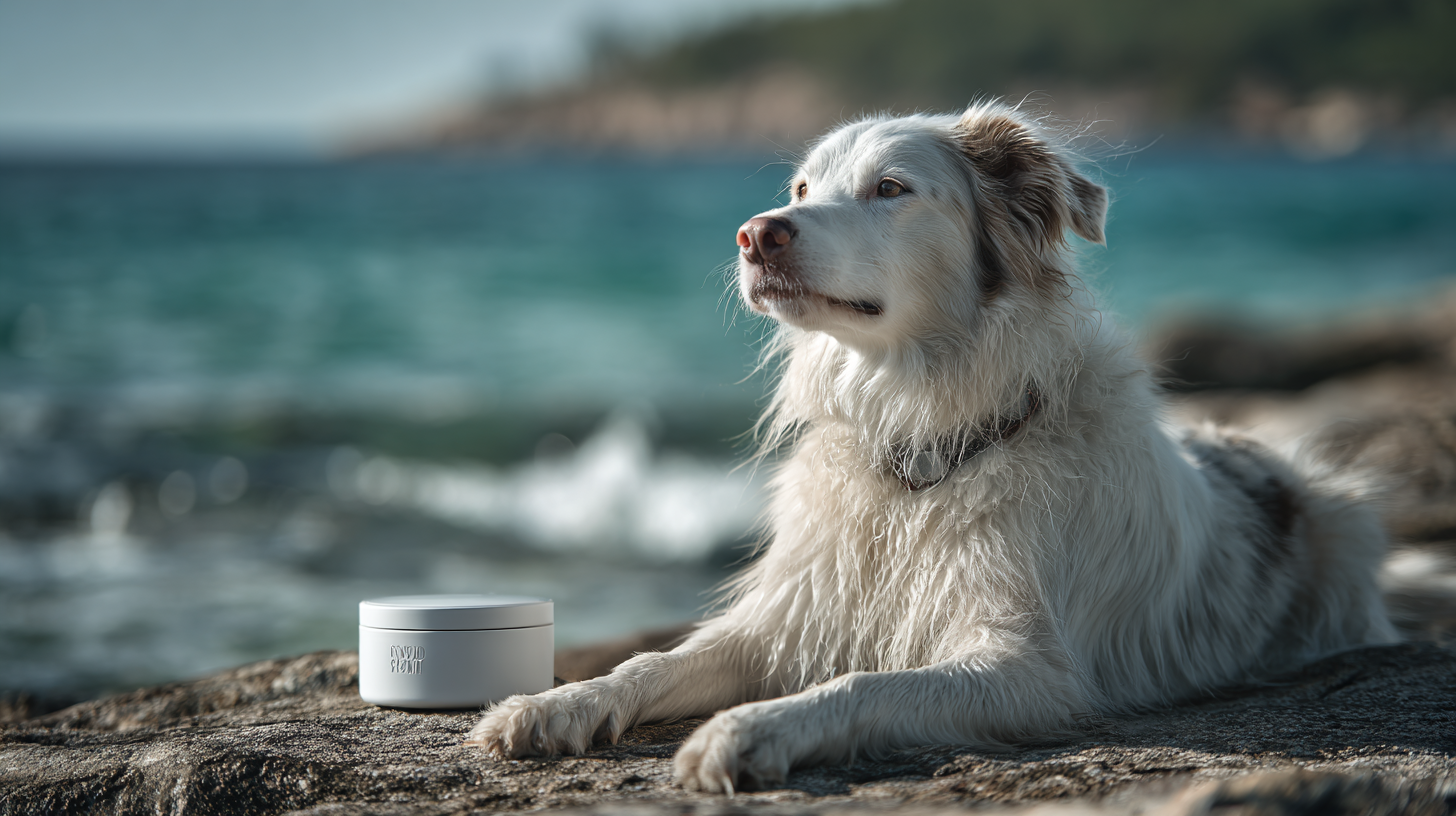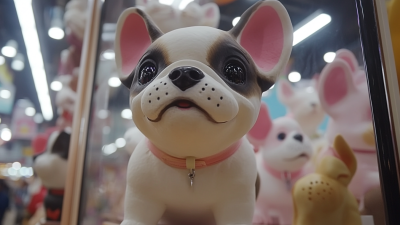The pet care industry is undergoing a significant transformation as consumers increasingly demand eco-friendly alternatives, particularly in the realm of dog products. According to a recent report by Grand View Research, the global pet care market is projected to reach USD 202.6 billion by 2025, with a growing segment dedicated to sustainable products.
 Innovative companies are now prioritizing the development of biodegradable dog toys, organic pet foods, and harnesses made from recycled materials. This shift not only reflects the changing attitudes of pet owners but also aligns with a broader commitment to environmental responsibility. As awareness of climate change and plastic pollution rises, dog products designed with sustainability in mind are becoming essential in setting new industry standards, appealing to conscientious consumers who seek to minimize their ecological footprint while caring for their furry companions.
Innovative companies are now prioritizing the development of biodegradable dog toys, organic pet foods, and harnesses made from recycled materials. This shift not only reflects the changing attitudes of pet owners but also aligns with a broader commitment to environmental responsibility. As awareness of climate change and plastic pollution rises, dog products designed with sustainability in mind are becoming essential in setting new industry standards, appealing to conscientious consumers who seek to minimize their ecological footprint while caring for their furry companions.
The pet food industry is witnessing a significant shift towards sustainable ingredients, driven by a growing demand from pet owners for high-quality, natural components. Key statistics indicate that the European pet food market is anticipated to reach approximately $51.4 billion by the end of 2032, growing at a compound annual growth rate (CAGR) of 5.75%. This growth reflects a broader trend of pet owners increasingly prioritizing sustainability and nutrition in their purchasing decisions.

The rise of plant-based protein in pet food is particularly noteworthy. The market for plant-based protein in pet products was valued at $150 million in 2022 and is projected to hit $460 million by 2030, with a CAGR of 15%. This trend underscores a fundamental change in the way we think about pet care, nudging manufacturers to innovate with ingredients that are both eco-friendly and beneficial for pets.
Tips for pet owners considering sustainable products include:
By making informed choices, pet owners can contribute to a more responsible and sustainable pet care industry while ensuring their furry companions receive the nutritional benefits they deserve.
As urban areas continue to expand, the environmental impact of dog waste has become a growing concern. Recent research highlights a troubling connection between dog waste and bacterial pollution in cities, indicating that pet owners may inadvertently contribute to water contamination and potential health risks for both humans and wildlife. With studies indicating that dog waste can contain harmful bacteria, it emphasizes the urgent need for sustainable solutions in pet care.
Biodegradable dog waste bags have emerged as a pivotal innovation in tackling this issue. Unlike traditional plastic bags which can take centuries to decompose, biodegradable alternatives are designed to break down more quickly, significantly reducing their environmental footprint. Industry reports suggest that the use of biodegradable bags could potentially cut down plastic waste in landfills by up to 30%. Moreover, as consumer awareness rises regarding the detrimental effects of plastic pollution, the demand for eco-friendly products in the pet care sector is surging, prompting a shift in manufacturing standards.
Adopting biodegradable dog waste bags not only mitigates the health risks associated with bacterial contamination but also aligns with broader environmental sustainability goals. As pet owners make conscientious choices, the positive impact on urban ecosystems can become increasingly significant, contributing to cleaner neighborhoods and healthier communities.
| Product Type | Material | Biodegradable? | Average Decomposition Time | Environmental Benefits |
|---|---|---|---|---|
| Dog Waste Bags | PLA (Polylactic Acid) | Yes | 90-180 days | Reduces plastic waste in landfills |
| Dog Toys | Natural Rubber | Yes | 2-5 years | Sustainable sourcing |
| Dog Bowls | Bamboo Fiber | Yes | 3-4 years | Biodegradable and compostable |
| Dog Grooming Products | Organic Ingredients | Yes | N/A | Non-toxic and safe for environment |
| Dog Beds | Recycled Materials | Yes | 1-5 years | Reduces waste and promotes recycling |
Innovative eco-friendly dog toys are rapidly transforming the pet care industry by prioritizing sustainability without compromising on quality or fun. One of the standout materials reshaping this sector is natural rubber, often sourced from sustainable rubber plantations. These toys not only provide durability for energetic play but also break down more easily in landfills compared to their plastic counterparts. Furthermore, many brands are incorporating organic cotton and hemp, which are not only safer for pets but also significantly reduce the environmental footprint.
The benefits of these eco-friendly toys extend beyond just being biodegradable. They often come free from harmful chemicals found in many traditional dog toys, ensuring a safer playtime experience for pets. Additionally, many companies are adopting fair trade practices, supporting local communities and promoting ethical manufacturing. This combination of safety, sustainability, and social responsibility positions innovative eco-friendly dog toys as a game-changer in both the pet care industry and the broader market for sustainable products. As pet owners increasingly seek out items that align with their values, these toys are meeting a growing demand for eco-conscious choices, ensuring that playtime is both enjoyable and responsible.
As the pet care industry continues to evolve, the emphasis on ethical pet products is becoming increasingly significant in the quest to reduce the carbon footprint associated with pet ownership. These eco-friendly alternatives not only minimize environmental impact but also represent a shift in consumer consciousness toward sustainability. From biodegradable dog waste bags to organic pet food, companies are innovating to provide solutions that align with ecological values while maintaining the quality and safety that pet owners expect.
The use of ethical materials in pet care products is crucial in addressing the environmental challenges posed by traditional manufacturing processes. For instance, many brands are adopting recycled or sustainably sourced ingredients for toys and accessories, thereby reducing waste and the energy required for production. Additionally, the growing trend of utilizing plant-based components can lead to a lower overall carbon output, contributing to a healthier planet. By choosing these eco-friendly options, consumers are not just caring for their pets; they are also making impactful decisions that reflect a commitment to environmental sustainability.
As consumers become increasingly eco-conscious, their preferences are driving meaningful changes in the pet care industry. More pet owners are seeking products that align with their sustainable values, prompting brands to innovate and adapt their offerings. From biodegradable dog waste bags to organic pet food, the demand for environmentally friendly products is reshaping how companies approach product development. This shift not only benefits the planet but also enhances the overall health and well-being of pets.
Furthermore, the growing awareness of the environmental impact of consumer choices has led to a rise in transparency among pet product manufacturers. Brands that prioritize sustainability are making efforts to clearly communicate their practices, whether it's sourcing materials responsibly or implementing eco-friendly packaging solutions. As a result, pet owners are becoming more discerning, often opting for products that boast certifications such as cruelty-free or organic. This evolution reflects a broader trend towards conscious consumerism, where the health of pets and the planet go hand in hand, setting new industry standards for pet care.






